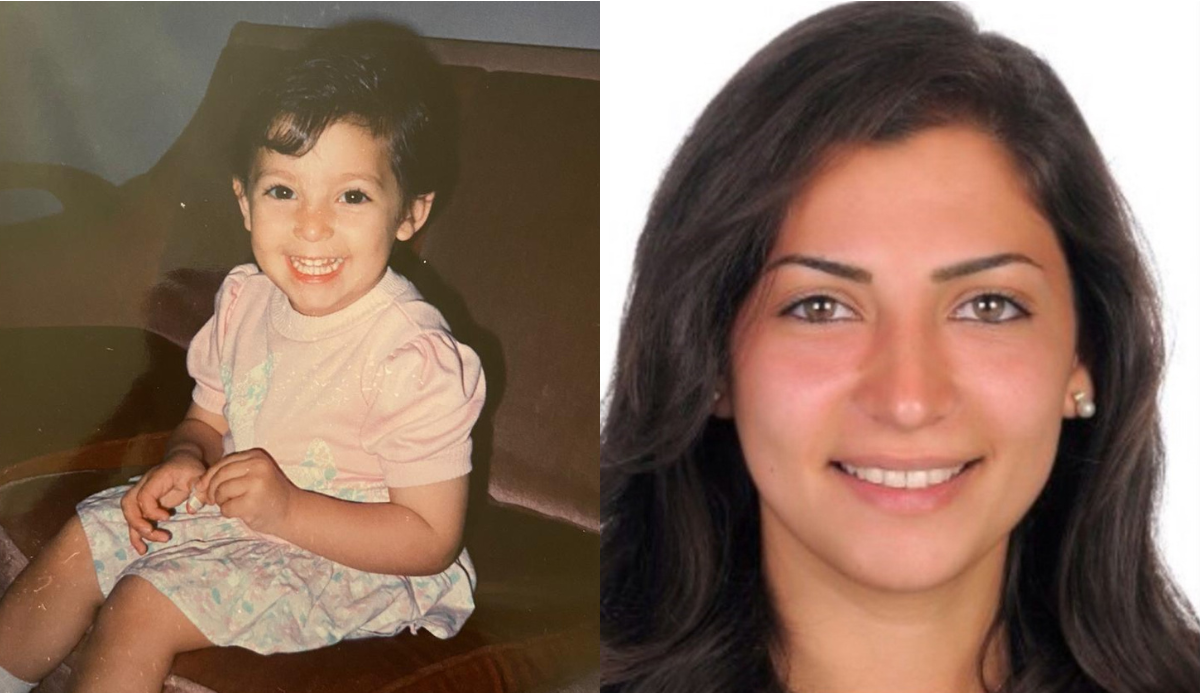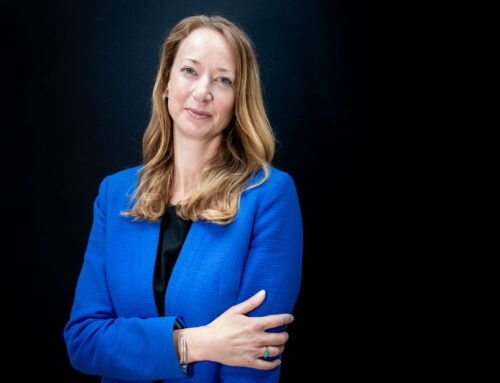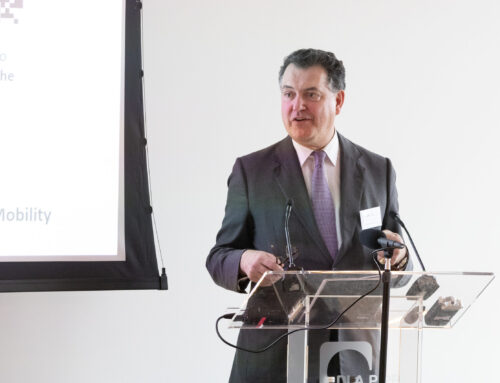Lara Ayash tells others to “dare to dream” and this isn’t just an empty slogan for her, it comes from her heart.
Lara was brought up in the aftermath of war in the Middle East, facing the challenges of being poverty-stricken and female in a society where she found success for women was measured by the ability to build a family rather than a career.
So she focussed on leaving Lebanon and embarking on a career with meaning.
A living example of social mobility, Lara now uses her own life experiences to demonstrate to businesses the real value of hiring and promoting people from different backgrounds.
One of four daughters who grew up with their parents in a one-bedroom flat in Lebanon, she said: “We knew we couldn’t ask for ice cream, chocolate or toys because there was no money. We played by making up characters in our imagination and I had to save up pennies for years to buy a toy.”
Lara threw herself into learning and was eventually offered scholarships for school and university, which proved to be the catalyst to her journey out of Lebanon and eventually to her current home in North London.
She said: “I was 100% focussed on pursuing education and spent hours and hours reading, studying and practising English. I knew I had to work hard and be top in my year to get into an elite university.
“At university everyone wore head-to-toe designer clothes and drove Porsches and Range Rovers. I felt the pressure to fit in so I decided to focus on education to climb the ladder. I always believed I would go far in my journey.”
“I didn’t have the confidence instilled by private education or an Oxford degree.”
Lara is open about the fact that she suffered mental health challenges in her late teens and early adulthood but focussing on her studies gave her an escape route which meant she was able to graduate early and start work at the age of 20.
Eventually landing a role in a tax department, Lara was able to travel to different countries, with her knowledge of Arabic becoming a reliable tool for securing work.
However, still Lara struggled to find her place. She said: “I didn’t have the same background as others I worked with. I didn’t have the confidence instilled by private education or an Oxford degree. I felt that everyone else was much better at articulating themselves and I suffered from imposter syndrome, as many people from lower socio-economic backgrounds do.”
It was a mentor at work who finally helped Lara begin to reach her potential and secure a role with Deloitte in London, where she became involved in diversity projects and realised that was where her passion lay. From there she went on to work in Diversity, Equity and Inclusion and drew on her own experiences to fuel her career success.
Through her experience of working in the diversity, equity and inclusion field with Deloitte, Lara supported the Valuable500 and the Government-commissioned taskforce which led to the formation of Progress Together.
“Navigating those challenges equips you with a level of strategic thinking that comes naturally.”
Lara said: “My whole life I had felt ‘othered’. Whether it was not having the designer clothes, not being able to afford to join people in paid activities, being an Arab woman in a Catholic school, being harassed at work, or not having perfect English, they all added up.
“But when you give people from a lower socio-economic background an opportunity you see they are hardworking, dedicated and put their heart and soul into it. That’s how it was – I didn’t know how to be any other way.
“There’s a drive you have from experiencing poverty, hunger and lack of privilege. You have to plan food in advance to make the money stretch, you have to plan when to take a shower because there isn’t always electricity. Navigating those challenges equips you with a level of strategic thinking that comes naturally because you do it in everyday life, whereas others may have to learn it as they go through their careers.”
Lara is now Managing Director of LA Management Consultancy, using her expertise in diversity, equity and inclusion to change their culture around employing and promoting people from varied backgrounds.
She said: “To anyone else in a similar situation I would say: ‘dare to dream’. Because if you dream it, you can do it.”
Lara’s five tips for people with high aspiration and a lower socio-economic background:
- Conquer intimidation and the fear of not being good enough. Commit to learning, whether it is asking questions, putting yourself out there or asking for feedback. This will help you fill any gaps in knowledge or skills.
- Know when to take a break. Your load will be heavier than people around you and the energy that drives you might be the energy that burns you.
- Look after your mental health and take a break when you need it. It doesn’t mean you are not good enough!
- Don’t assume that you are less or you are not good enough. You will soon learn everyone around you is thinking the same about themselves, for different reasons.
- Know that your experience to date has equipped you with a number of life skills that will make it easier for you to grow and succeed.
Approach unfairness with kindness. Whilst it is easy to be angry, it will unlikely get you anywhere. Instead, explain the situation, express how you feel and have a clear ask. In most cases, it is a systemic issue but you will be able to educate someone who has the power to make change.




